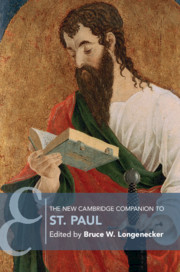Book contents
- The New Cambridge Companion to St. Paul
- Cambridge Companions to Religion
- The New Cambridge Companion to St. Paul
- Copyright page
- Dedication
- Contents
- Map
- Contributors
- Abbreviations
- Part I Paul, Letters and Communities
- Part II The Pauline Letter Collection
- 4 The Thessalonian and Corinthian Letters
- 5 Galatians and Romans
- 6 Philippians and Philemon
- 7 Colossians and Ephesians
- 8 The Pastoral Epistles
- Part III Paul’s Theological Discourse
- Bibliography
- Index of Biblical and Ancient Writings
- Index of Modern Scholars
- Cambridge Companions to Religion (continued from page iii)
- References
4 - The Thessalonian and Corinthian Letters
from Part II - The Pauline Letter Collection
Published online by Cambridge University Press: 19 June 2020
- The New Cambridge Companion to St. Paul
- Cambridge Companions to Religion
- The New Cambridge Companion to St. Paul
- Copyright page
- Dedication
- Contents
- Map
- Contributors
- Abbreviations
- Part I Paul, Letters and Communities
- Part II The Pauline Letter Collection
- 4 The Thessalonian and Corinthian Letters
- 5 Galatians and Romans
- 6 Philippians and Philemon
- 7 Colossians and Ephesians
- 8 The Pastoral Epistles
- Part III Paul’s Theological Discourse
- Bibliography
- Index of Biblical and Ancient Writings
- Index of Modern Scholars
- Cambridge Companions to Religion (continued from page iii)
- References
Summary
This essay discusses the texts that, through their commonalities and differences, illustrate various ways in which early forms of Jesus-devotion were relating to their contexts within the Roman world and how Paul addressed particular issues that arose within those communities
Keywords
- Type
- Chapter
- Information
- The New Cambridge Companion to St. Paul , pp. 69 - 91Publisher: Cambridge University PressPrint publication year: 2020

